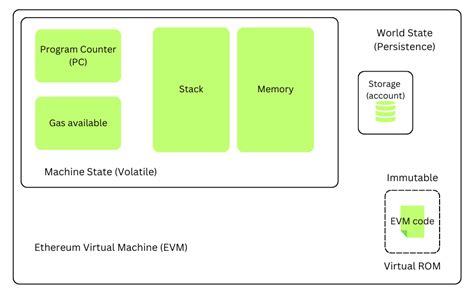Ethereum: What is the state of alternative implementations of complete nodes?
In “running an alternative of complete implementation of the node benefits the Bitcoin network?”, I asked about running an alternative implementation of complete nodes for the benefit of the Bitcoin network. One of the most commonly discussed implementations is the Ethereum Full Node, which allows users to access and validate transactions on the Ethereum blockchain.
However, running a complete implementation of the node has some disadvantages that could make it difficult to obtain benefits. In this article, we will explore what is currently known about the alternative implementations of complete nodes and their status on the market.
Why is running a complete node implementation alternative?

Before we sink into the current state of Ethereum Full Node implementations, let’s talk quickly why they are considered beneficial in the first place. Running a complete knot implementation offers several advantages:
- Security : By validating transactions on blockchain, a complete knot ensures that all users agree with the network status and prevent double expenses.
- Decentralization : The complete nodes work independently, which makes them resistant to censorship and handling by the central authorities or malicious actors.
- Consensul : The complete nodes check the validity of the transactions using cryptographic techniques, ensuring that blockchain remains in a consensus.
Full implementation of Ethereum node: Solana Node
One of the most popular alternative implementations is Solana Node (SN). Developed by Solana Labs, it allows users to access and validate Ethereum similar intelligent contracts on Blockchain Solana. SN offers more benefits including:
* Quick transaction processing : SN uses a unique consensus algorithm that allows fast transaction processing times.
* High scalability
: With sharpening support and other optimizations, SN can manage high transaction volumes.
Status of alternative implementation of complete nodes
Although there are alternative implementations of complete available nodes, such as Hyperledger Fabric, Quorum and many more, the solar node is currently the most used implementation. However, it is essential to note that each of these alternatives has its own strengths and weaknesses and not all can be suitable for everyone’s needs.
challenges and limitations
Running an alternative implementation of the full node can come up with more challenges and limitations:
* Hardware requirements : The hardware required to run a complete knot can be expensive or difficult to purchase.
* Energy consumption : Running a complete knot can consume significant amounts of energy, especially if it runs on a dedicated hardware device.
* Maintenance costs : Because implementation is open-source and maintained by volunteers, maintenance costs can be unpredictable.
Conclusion
In conclusion, while alternative implementations of complete nodes, such as solar knot, offer several benefits for decentralization, security and scalability, they also come with significant challenges and limitations. Before deciding to run a complete implementation alternative, it is essential to weigh the advantages and consider your specific needs and requirements.
REPORT REPORT WITH YOUR CRYPTO
